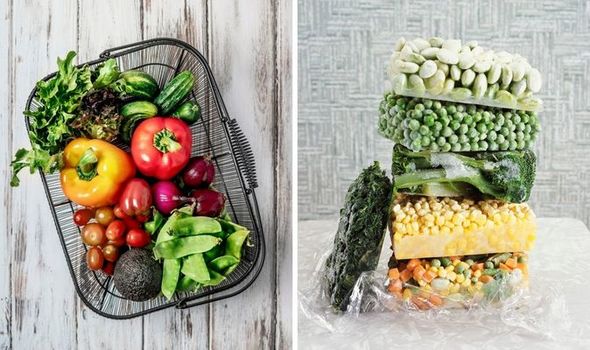Hi, Food Lovers. Happy New Year to you all. Hope you had a wonderful celebration. Almost everyone I know has made work, finance, or relationship-based new year resolutions. Have you made yours? This brings me to ask the question, should new year resolutions really be just about work, finance and relationships? Shouldn’t food and nutrition make the resolution list? Or is eating healthy not a priority in 2021?
Read more about Food
Well, if it is, I’m sure you would have outlined what you consider healthy and what you think isn’t. By the way, what’s your take on frozen foods? Are you one of those who believe that it’s devoid of nutrients? Have you consigned it to the “Don’t use in 2021” baggage? Well, if you have a few concerns about frozen foods, I’ll be shedding more light on the fresh versus frozen foods debate today using fresh and frozen fruits and vegetables. It is my sincere hope that what you’ll learn today will lay your concerns to rest.
First of all, fresh foods refer to foods that have not been preserved and have not spoiled yet. For fruits and vegetables, it means that they have been recently harvested and treated properly post-harvest. Frozen foods, on the other hand, refer to foods that have been preserved by a freezing process and stored in the freezer.
So, are frozen foods really lacking in nutrients? Well, the argument that frozen foods are lacking in nutrients is not unfounded. It may have been true to some extent, some three decades ago but the frozen food industry has evolved and has adopted a health-conscious culture that has helped in the production of healthier frozen meals. In order to understand this better, we’ll need to address the question of how fresh is your fresh produce.
Most fresh produce is usually detected on sight. While one can easily tell the fresh, strong and unblemished fruits and vegetables from the wilted, soft and unblemished ones, it is pertinent to mention at this point that in terms of nutritive value, not all that look fresh are as nutritious as can be. That’s because some of these products may have been picked unripe, stored for months and shipped with little damage.
Sign up to the Connect Nigeria daily newsletter
Some may even have been speed ripened before arriving at the grocery store. Thus, while these products may still look fresh, they may not have the same nutritive value as the naturally matured ones. What’s more, if they spend a long time on the shelf before purchase and use, their nutritive value will further diminish.
Frozen produce, on the other hand, are picked ripe. They are sometimes blanched minimally in hot water before freezing. While this helps to preserve its nutritive value, the blanching process kills bacteria and stops food degrading enzymes.
It also causes some water-soluble Vitamins like Vitamin B and C to breakdown or leech out. However, it is interesting to note that some of these frozen foods are enhanced with Vitamin C during the packaging process; this replaces some lost vitamins and prevents browning.
Thus, by necessary implication, the carbohydrate, protein, fibre and mineral contents are similar between fresh foods and frozen foods. Also, while fresh produce may lose half of its vitamins and phytonutrients during storage or cooking, frozen produce may lose some of its vitamins during blanching and packaging.
Thus, while fresh foods should be enjoyed more when in the season because they are tastier, cheaper and more nutritious, their frozen counterpart should be enjoyed more when they are out of season because they are cheaper and more nutritious. This, therefore, brings me to the conclusion that frozen foods are a great alternative to fresh foods especially if the fresh produce isn’t so fresh anymore.
References:
Collins English Dictionary
Life Hacker
Mental Floss
Sizzle Fish
Featured Image Source: Sound Health And Lasting Wealth
Got a suggestion? Contact us: [email protected]

